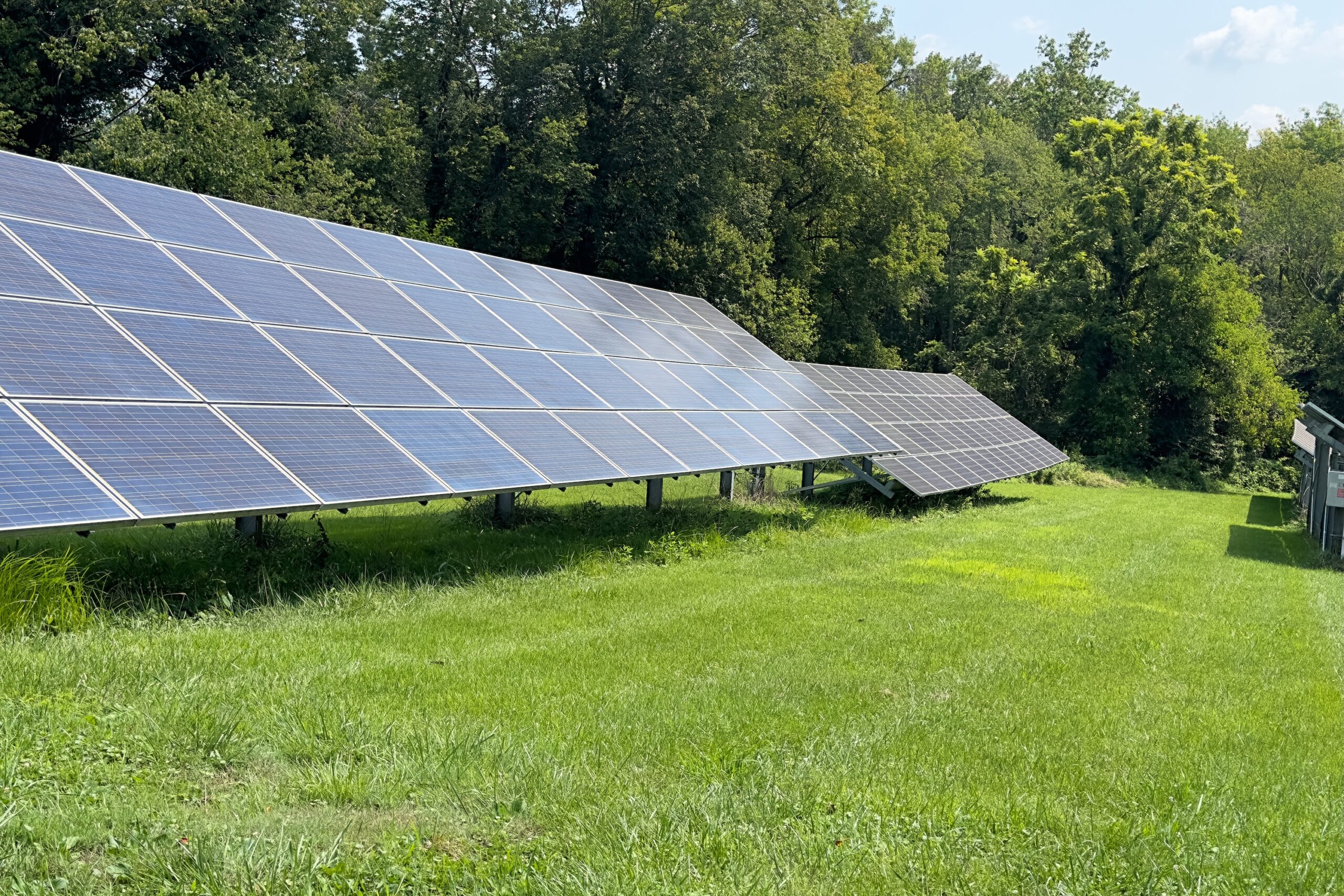PSC chair wants to ‘lower the temperature’ on siting disputes over renewable energy projects

The new leader of the Maryland Public Service Commission said Tuesday that he plans to convene meetings with interested parties over the next few months to discuss the increasingly controversial issue of where to place renewable energy installations in the state.
Testifying before a virtual hearing of the state Senate Committee on Education, Energy and the Environment, Fred Hoover, who took over as PSC chair in July, said he wanted to “get all the parties together to lower the temperature in some of these siting topics.”
The PSC is Maryland’s chief energy and utility regulatory agency, but it also has a historical role in approving proposals to build energy-generating facilities in the state. Where once that job meant considering and approving large power plants, as the industry evolves the commission now is tasked with becoming involved in decisions about where to place renewable energy installations. Those fights, especially over whether to allow solar projects on land zoned for agricultural uses or forests — and the PSC’s role in them — have become increasingly contentious.
Four years ago, the state’s highest court, then known as the Maryland Court of Appeals, ruled that the PSC can supersede local zoning laws when it came to applications to build large renewable energy installations.
Sen. Brian J. Feldman (D-Montgomery), chair of the Education, Energy and Environment panel, said in his view the court ruling suggested “the PSC is top dog” in these disputes. But he acknowledged that other entities, including the powerful Maryland Association of Counties, may have a different interpretation of the court decision.
“This issue has been very controversial over the interplay between the Public Service Commission and local governments,” Feldman said. “…This is still a muddied water kind of topic.”
Hoover pointed out that any entity applying to build a large renewable energy installation, such as a solar array on agricultural land, still must obtain relevant permits from local governments before they can proceed.
Earlier this month, Feldman, along with House Economic Matters Chair C.T. Wilson (D-Charles) and House Environment and Transportation Chair Marc Korman (D-Montgomery) wrote a letter to Gov. Wes Moore (D) seeking guidance on how the state should approach controversies over renewable energy installations given the necessity of increasing the state’s renewable energy generation to meet aggressive climate goals, among other things. Under legislation required last year, the state is required to hit a 50% renewable energy goal by 2030 and to use 100% clean energy by 2035.
“To achieve these targets, Maryland must dramatically and equitably increase its deployment of solar installations across the State and identify appropriate locations for energy storage,” the committee chairs wrote. They asked Moore to direct several state agencies to coordinate these efforts, “as well as identifying innovative policies being pursued in other states.”
Hoover told senators that his decision to convene meetings on siting was, in part, a response to the lawmakers’ query.
The Task Force to Study Solar Incentives, which was set up by state legislation this year, is also expected to examine this topic in months ahead.
So far, local governments have taken a piecemeal approach to renewable energy siting policies. In 2021 Montgomery County passed legislation effectively limiting the number of solar arrays that can be installed in the county’s vast Agricultural Reserve. Just last month, the Carroll County Board of Commissioners voted unanimously to ban large solar projects from being built on land zoned for agricultural use. Next week, the Anne Arundel County Council is tentatively scheduled to vote on amended legislation that could limit the amount of solar arrays permissible on undeveloped land.
Several stakeholders — including leaders of renewable energy companies, environmental groups, agricultural concerns, business organizations and local governments — have begun wondering openly if the state needs uniform standards on where and how to build renewable energy installations. A bill passed in this year’s General Assembly session makes it easier to install solar arrays on industrial lands, public and private rooftops, parking lots and other public facilities. Baltimore County officials, including County Executive Johnny Olszewski Jr. (D), are participating in a ribbon-cutting Wednesday for a rooftop solar project in Rosedale that will eventually provide power to 6,000 area homes.
But it’s widely acknowledged that some agricultural land will have to be set aside for renewable energy installations if the state is to hit the clean energy goals laid out in the 2022 Climate Solutions Now Act.
Hoover acknowledged the possible need for statewide legislation to quell the siting controversy when he told the senators Wednesday that he may approach them for “a legislative fix.”
The discussion about renewable energy siting came at the end of a two-hour hearing by the Senate committee that enabled lawmakers to learn more about the Public Service Commission and its myriad responsibilities. The Senate panel was renamed and given a new portfolio at the beginning of the year, so many members of the panel are still learning about energy issues. Additionally, three of the five PSC commissioners have taken office in the past few months, as Moore attempts to make the agency an aggressive partner in the administration’s desire to combat climate change.
PSC officials led the Senate committee through discussions ranging from how the commission considers utilities’ requests to raise rates, to how to read an electric bill, to whether utilities are being given too much license to beef up natural gas infrastructure, to some of the particulars on electric supply competition.
“To me it seemed like the right level of high-level and basic,” said Sen. Cheryl C. Kagan (D-Montgomery), the committee vice chair.




 Creative Commons Attribution
Creative Commons Attribution